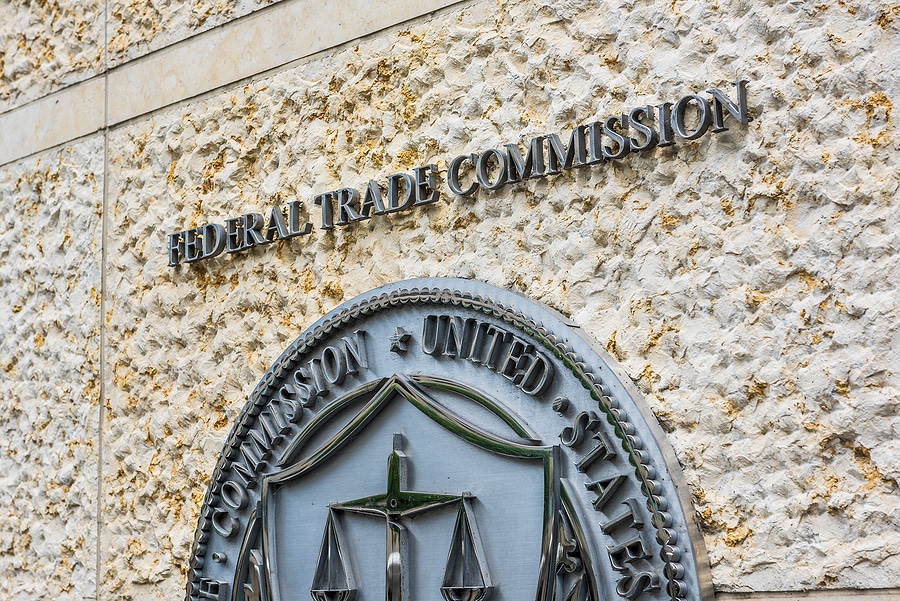
FTC Files Complaint Against Brigit Financial Health App: Allegations of Deceptive Practices
 The Federal Trade Commission (FTC) has taken legal action against Bridge It, Inc., known as Brigit, citing deceptive practices associated with its financial health app. The FTC is seeking permanent injunctive relief, monetary restitution of $18 Million, and other remedies owing to Brigit’s alleged violations of consumer protection statutes under federal laws like the Federal Trade Commission Act and the Restore Online Shoppers’ Confidence Act.
The Federal Trade Commission (FTC) has taken legal action against Bridge It, Inc., known as Brigit, citing deceptive practices associated with its financial health app. The FTC is seeking permanent injunctive relief, monetary restitution of $18 Million, and other remedies owing to Brigit’s alleged violations of consumer protection statutes under federal laws like the Federal Trade Commission Act and the Restore Online Shoppers’ Confidence Act.
What Is Brigit and Its Promises?
Brigit presents itself as a financial health app designed to support Americans living paycheck to paycheck. It offers short-term cash advances, purportedly up to $250, to consumers who enroll in a monthly membership plan costing $9.99. The app charges this fee directly from users’ bank accounts and continues renewing the plan unless explicitly canceled by the consumer.

FTC Allegations of Deceptive Practices
The crux of the complaint revolves around the disparity between what Brigit advertises and what it delivers. The FTC’s complaint against Brigit reveals numerous allegations regarding deceptive claims and practices in their advertising, marketing, and enrollment processes. These claims are alleged to mislead consumers about the nature of cash advances, subscription enrollment, and cancellation procedures.
- Misleading Cash Advance Claims: Brigit’s app store listings and enrollment screens are alleged to repetitively claim immediate $250 cash advances with no late fees, interest, or hidden charges. However, the allegations suggest that these claims are misleading, as only a small fraction of Brigit Plus customers actually receive the advertised $250 cash advance. Many reportedly receive substantially less than this amount, while around 20% are denied access to cash advances altogether.
- Enrollment Screens’ Deceptive Claims: During the enrollment process, consumers allegedly encounter screens that reiterate Brigit’s misleading promises about obtaining cash instantly without interest or credit checks. However, the FTC suggests that consumers are required to go through multiple steps and often only discover limitations on cash advances after subscribing to Brigit Plus and agreeing to pay the subscription fee.
- Difficulties in Canceling Subscriptions: Brigit is accused of making it challenging for consumers to cancel their subscriptions by implementing intricate procedures with multiple impediments, often referred to as “dark patterns.” Allegations include instances where consumers were directed through confusing screens that hindered cancellation attempts, including limited options to switch to the free plan or pause the subscription instead.
- Unfair Charging Practices: The FTC asserts that Brigit restricts Plus members with outstanding cash advances from canceling their subscriptions or switching to a free membership plan, effectively locking them into paying $9.99 per month until they repay the advance. These practices reportedly contradict Brigit’s advertising claims of no late fees or penalties for advances and the ability to cancel anytime.

Provisions of the FTC Proposed Order
The order contains several critical provisions:
- Prohibition of Misrepresentation: Brigit is permanently restrained from misrepresenting crucial aspects like available funds, fees, cancellation details, and other material facts concerning its services.
- Mandatory Disclosures: Brigit must provide clear and conspicuous disclosures regarding costs, recurring charges, and deadlines to avoid charges related to its negative option feature.
- Informed Consent: Prior to charging consumers, Brigit must obtain express informed consent, whether through written or oral means, ensuring consumers understand the charges and their obligations.
- Monetary Relief: Bridge It, Inc. must pay an $18 million monetary judgment to the Federal Trade Commission (FTC).
- Compliance and Monitoring: The order also mandates stringent compliance measures, including detailed reporting on business activities, compliance with the order’s terms, recordkeeping, and ongoing compliance monitoring by the FTC.
Brigit’s Response
 Brigit, while not admitting to the allegations, has agreed to the stipulated order to resolve the dispute. The order does not absolve Brigit of any monetary liability or claims under the Equal Access to Justice Act concerning the prosecution of this action.
Brigit, while not admitting to the allegations, has agreed to the stipulated order to resolve the dispute. The order does not absolve Brigit of any monetary liability or claims under the Equal Access to Justice Act concerning the prosecution of this action.
INSIDER TAKE
The FTC’s intensified regulation of deceptive digital transactions and enforcement of consumer protection laws spotlights the importance of transparency and fairness in financial services. Brigit’s alleged misleading practices and the ensuing FTC action underscore the necessity of honesty and clarity in services, especially regarding fees, benefits, and cancellation procedures, particularly within apps designed to assist consumers in need.





